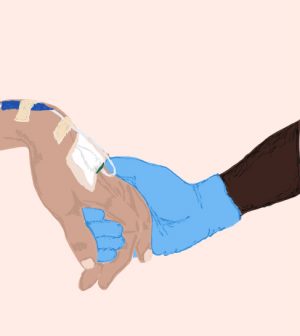It’s time we become comfortable with compliments
Compliments make people uncomfortable due to the fact they are not expected.
November 18, 2021
“You look so pretty!”
“Er- no you.”
That is my overused response to any compliment I receive: simple, curt and self-reflexive.
But, this “simple” response isn’t so simple. It’s an anxiety-driven response coupled with discomfort and uncertainty.
Whenever I receive a compliment, my brain short circuits. My mind goes blank for a moment with astonishment. Immediately afterwards my thoughts storm into a mess. I wonder how I should respond. After all, there are so many things to keep in mind: not sounding rude, narcissistic nor dismissive. With all of these issues, receiving compliments becomes more of a nerve-wrecking task than a kind gesture.
Unfortunately, I am not the only person who feels this way.
“[When recieving to compliments] I normally get self-conscious [because] I also don’t know how to respond,” DVHS junior Ruhi Bansal said.
How did such a kind gesture become an arduous task?
Our society puts humility on such a high pedestal that when we are confronted with compliments, we feel discomfort.
My parents always taught me to kindly dismiss compliments out of a sign of humility. Whenever I received praise, I would immediately turn to the “You too!” response rather than simply answering with a “thank you”. Repeating this verbal gesture to the point that it became a habit makes it difficult for me to return to the simple “thank you” that I should have begun with.
Along the way, these “humble” actions stray and our mindset towards ourselves also becomes the hurdle.
DVHS psychologist Melissa Nolan explained, “[Compliments] can be scary if [the complementor] sees [us] [in a] different [light than] how we see ourselves because [that compliment] doesn’t fit [into] what we think about ourselves.”
This is especially relevant at DVHS where parental pressure and competitiveness causes students to be harder on themselves.
“Even if [DVHS students] make an accomplishment, [they] don’t feel like it’s enough. We feel like we have to continue to make accomplishments and be even better than we already are,” DVHS junior Kirthi Shankar said.
A disparity in self-image can make these appreciations harder to receive.
However, compliments are a two-way journey, consisting of both the receiver and the giver.
As someone who enjoys complimenting others, I still tend to struggle doing so. I feel slightly awkward going up to a person whom I may not know. Even with my close friends, I worry that I could come off as weird or annoying when I try to compliment them.
So, if the receiver doesn’t reciprocate this gesture by accepting or acknowledging my admiration, it can be slightly disconcerting.
“[When] we don’t accept compliments, [we] don’t acknowledge how that other person is seeing [us],” Nolan said.
Compliments should be a positive interaction that involves appreciation and gratitude rather than an uncomfortable experience.
“Compliments can be rewarding. They typically encourage others and reinforce positiv[ity],” said DVHS psychologist Matt Newton.
In this two-way journey, if one side is doing their hundred percent, why don’t we reciprocate in the same style?
“The steps are acknowledging that the person is being kind. Even if we [don’t completely] believe what they’re saying, we should be thankful that the other person put themselves out there to tell us something [positive],” Nolan explained.
Next time, when someone comes up to me with a compliment, I hope to properly reciprocate the gratitude that I feel towards their appreciation.
An example response of how Nolan would respond to a compliment is, “‘Wow, thank you, you really just made me feel so good. And it’s funny, because I haven’t thought [this way] about myself. The fact that you’re going out of your way to tell me something like that means a lot to me.’”





